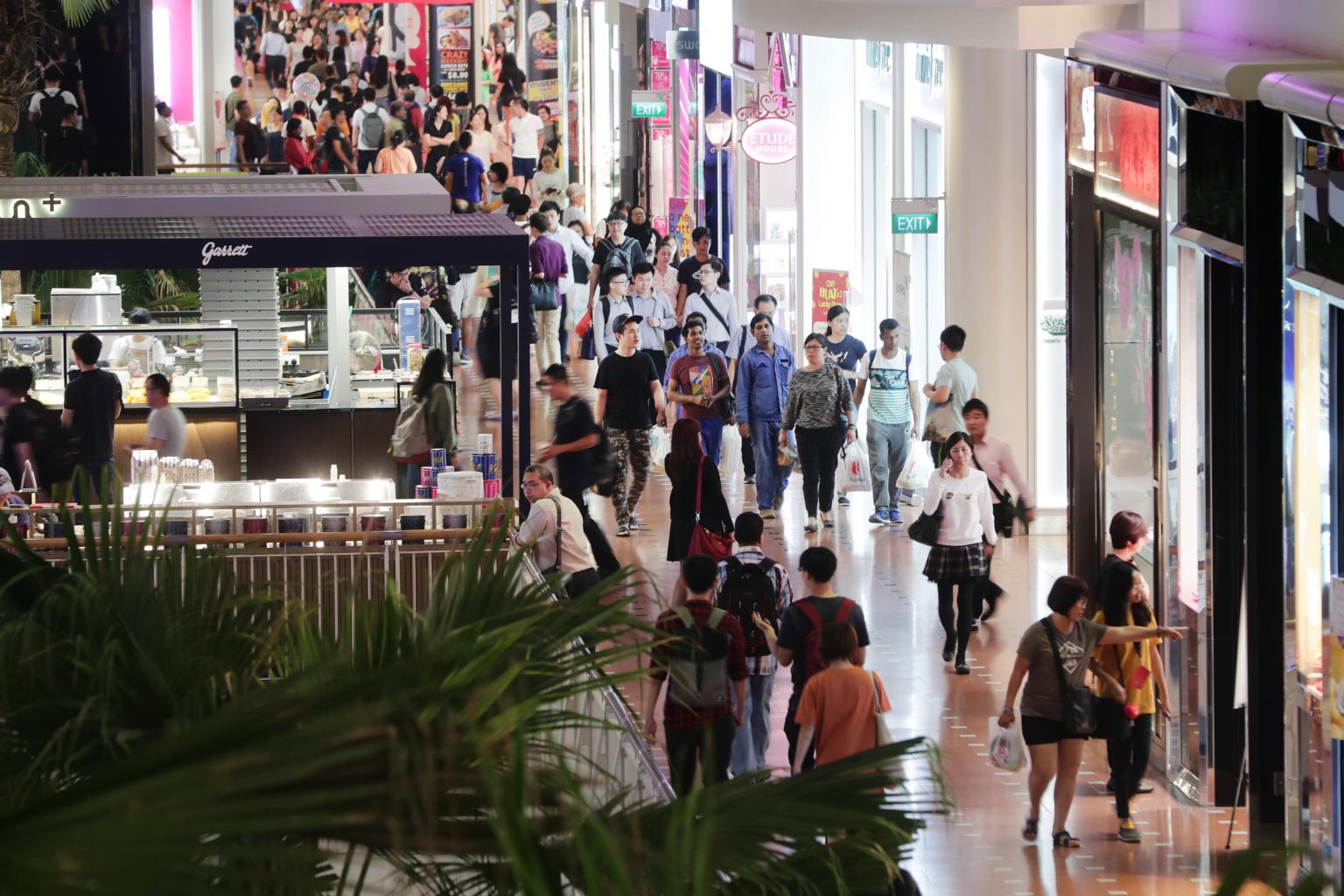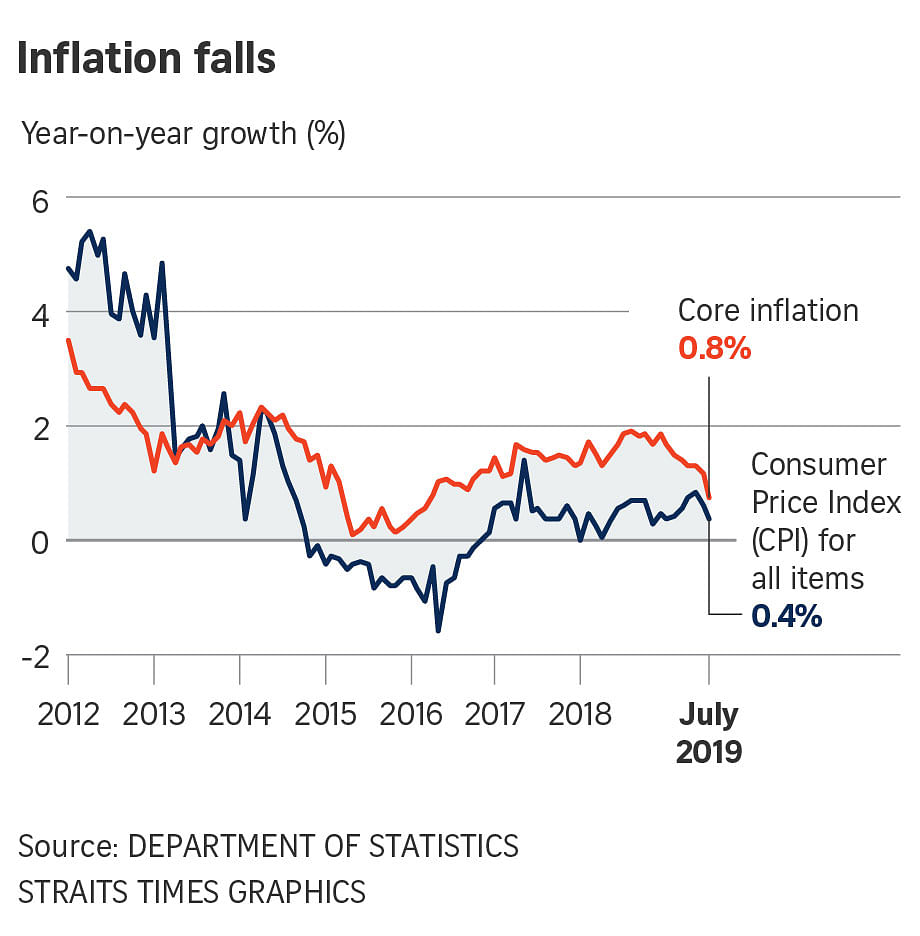Singapore core inflation falls to over 3-year low in July, outlook lowered
Sign up now: Get ST's newsletters delivered to your inbox

For July, the overall costs of retail items fell by 1.0 per cent year on year, reversing the increase of 0.4 per cent year on year the previous month.
PHOTO: ST FILE
SINGAPORE - Singapore's core inflation fell to more than a three-year low in July and below economists' forecasts due to broad-based weakness in consumer prices, data released on Friday (Aug 23) showed.
Core inflation - which strips out private road transport and accommodation costs - dropped to 0.8 per cent last month, down from 1.2 per cent in June and its lowest since April 2016 when it stood at that level.
Headline or overall inflation eased to 0.4 per cent in July from 0.6 per cent in the previous month.
The easing in core inflation was due to a fall in prices of retail and other goods, a larger decline in electricity and gas costs and lower service inflation, said the Ministry of Trade and Industry (MTI) and the Monetary Authority of Singapore (MAS) in a joint statement.
MAS and MTI also downgraded their guidance for core inflation while within the same forecast range. Core inflation for 2019 is now expected to come in "within the lower half of the 1-2 per cent forecast range", from their "near the mid-point of the range" view a month ago.
Headline inflation forecasts remain unchanged.
The inflation figures were below what analysts polled by Bloomberg had forecast. They had tipped overall inflation to come in at 0.5 per cent and core inflation to ease to 1.0 per cent.
Economists previously said that they expect Singapore's central bank to ease monetary policy at its semi-annual meeting in October, a move that seems increasingly likely, given the latest inflation figures and the darker economic outlook.

Core inflation is the Singapore central bank's preferred price gauge in setting monetary policy, as it excludes changes in the price of cars and accommodation, which are influenced more by government policies.
In their July statement, MAS and MTI reiterated that "external sources of inflation are likely to be benign" and "acceleration in inflationary pressures is unlikely".
But in a key change of tone, it said "Labour market conditions have largely held up, contributing to moderate wage increases and higher unit labour costs," compared to June's statement that "unit labour costs should continue to rise".
Earlier this month, Singapore slashed its forecast for economic growth this year to between zero and 1 per cent from 1.5 per cent to 2.5 per cent, and its prediction for shipments of non-oil domestic exports to -9 to -8 per cent.
For July inflation , the overall cost of retail items fell by 1.0 per cent year on year, reversing the increase of 0.4 per cent year on year the previous month.
This mainly reflected a dissipation of the effect of previous increases in water prices, as well as a larger drop in the prices of clothing and footwear, the MTI and MAS said.
Electricity and gas costs declined by 7.0 per cent year on year in July, steeper than the 4.8 per cent in June, due to a smaller increase in electricity tariffs a year ago, and the dampening of electricity prices due to the nationwide launch of the Open Electricity Market on electricity prices.
Services inflation dipped slightly to 1.6 per cent year on year last month, compared to 1.7 per cent in June. This was on account of a slower pace of increase in holiday expenses and a larger fall in telecommunication services fees, which outweighed a stronger pick-up in airfares, the MTI and MAS noted.
Food prices came in unchanged from the previous month at 1.4 per cent year on year as an uptick in food services inflation broadly offset a smaller increase in the prices of non-cooked food items.
Private road transport costs rose 0.3 per cent on the back of a stronger increase in the cost of general repair and maintenance of personal transport equipment, up slightly from 0.2 per cent in June.
Accommodation costs fell by 0.9 per cent year on year last month, a slower pace compared to the 1.1 per cent reported in June, due to a more gradual decline in housing rentals.


